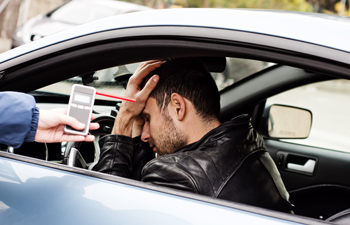Our DMV-approved online drivers education course is designed just for teens. Study at your own pace, pass the final test, and get your certificate.
Sign Up Now – Only $19.90 Learn More About Teen Drivers EdA chemical/BAC test is a breath, blood or urine test to determine the BAC level of a person.
Breath and blood tests are more common, and urine tests are less common and only used when breath and blood tests are not available.
If you are asked to take the chemical/BAC test, you can choose between a breath or blood test.

California Implied Consent
When you obtain your driver's license, you agree to abide by traffic laws including agreeing never to drive while impaired and complying with the state's BAC rules. As part of the requirements to agree to BAC rules, you agree that if an officer has probable cause that you are impaired, he/she can arrest you and ask you to take a mandatory chemical test (breath, blood or urine test) – this is called California Implied Consent law. This means that you have consented to taking a chemical test in a situation in which an officer arrests you based on the probable cause that you are under the influence of drugs or alcohol.
Additionally, under the California Implied Consent law, you also agree to take a preliminary breath test even though you have not been arrested; this is similar to a field sobriety test. The officer may ask you to take the breath test to check your BAC level before arresting you. You can refuse taking the preliminary breath test, but if the officer has probable cause that you are impaired, he/she can arrest you and require you to take chemical test (breath, blood or urine test).
If an officer suspects that you are under the influence of drugs and/or alcohol and asks you to take the chemical test, the law does not provide you an option to ask to be represented by an attorney before taking the chemical test. You can either accept or refuse. If you refuse, you will face different sets of penalties, and you may still get convicted of DUI, which can double the fines and penalties.
Also, if you are so intoxicated that you cannot respond, the officer has no choice to consider that as your refusal, and you will be fined and penalized for refusal to take the chemical test.
What are the penalties for refusing to take the chemical test in California?
If you refuse to take the chemical test after being arrested for the suspicious of being under the influence, you will face different sets of penalties:
You will be fined $125, whether this is your first, second or third refusal to take the chemical test. If you refuse to take the chemical test, it is not guaranteed that you won't be convicted of DUI. This is because you are more likely required to appear in court for refusing to take the test and the prosecutor will be more likely to bring up the fact that you refuse to take the chemical test because you knew that you were intoxicated.
Based on that, it is possible to receive two penalties: